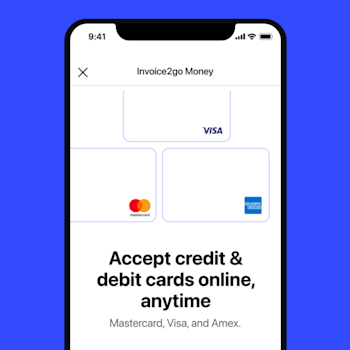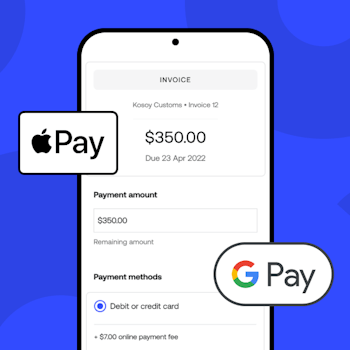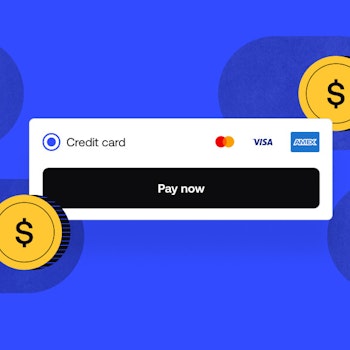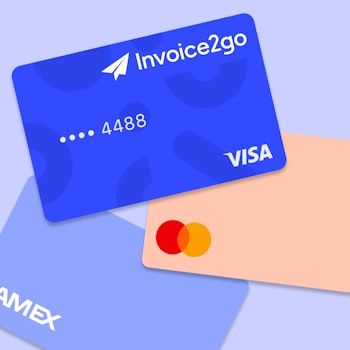
How to become a freelance consultant - a straightforward guide
In today’s shifting economy, many people have turned to freelancing to gain better control of their finances and live the life they want. Becoming a freelance consultant comes with higher-than-average earning potential. If you are a professional with a highly marketable skill, freelance consulting is a viable option.
So, if you find yourself underemployed or disenchanted with your current full-time job, starting a freelance business merits consideration. Freelance consultants work in just about every industry, meaning there are plentiful opportunities if you’re inclined to pursue them.
Today, we’re going to talk about freelance consulting—what a freelance consultant does, what a consultant’s life looks like, how to get started, and how much you can expect to make.
How much do freelance consultants make?
The financial bottom line is everybody’s bottom line. Whether you’re starting a freelance consultant career as a side-hustle or diving into it full-time, knowing your earning potential is vital.
What you can expect to make depends on the industry niche, your experience, expertise, and specialty. If you are one of only a few people who can do what you do, your value increases quite a lot. However, if you’re just starting out, even if you have a few wins under your belt, you might have to start at the bottom and work towards building a solid reputation before you can reach your full potential.
According to Glassdoor, the average annual salary for a freelance consultant is $79,454. However, that all depends on your niche, the demand for your services, and how much time you spend working.
Some IT consultants can make well into six figures, as can corporate strategy consultants working at a high level. Suffice to say, you’ll reap what you sow, so if you’re highly motivated, skilled, and able to do whatever it takes to ensure your clients’ success, you’ll do well.
What is a freelance consultant?
A consultant is any professional who leverages their skills to provide businesses with advice and expertise on a contract basis. Consultants are often brought in to help companies advance or expand into new areas, train staff, or improve processes to grow the bottom line.
For companies, hiring a consultant gives them access to expertise they do not have in-house. It helps them get to market faster and determine the feasibility of new projects or ideas.
Think about what you do, the specialties you have, and how you have benefitted your past employers and colleagues. If your skill set is valuable, chances are you’re in high demand and don’t even know it!
What does a freelance consultant do?
Freelance consultants are hired to help businesses improve and advance. Early-stage companies might hire you to help get them set up and established. You could be a stop-gap between management hires, such as when someone in a key position steps down or leaves unexpectedly. Or you could be working on a specific project with a well-defined objective and timeline.
The details are really about your capabilities, experience, and what you excel at. One thing consultants are not is inexperienced. You’re not just a warm body. You’re a problem-solver, an idea person, and a fresh set of eyes. The solutions you bring to the table achieve measurable results, and that’s what defines your value.
Here are a few examples of freelance consultants:
Business consultant
A business consultant provides professional advisory services to support companies in achieving their goals. Though business consulting is a broad category, the objective is usually process improvement that translates to bottom-line growth. Tasks could include creating business plans, optimizing processes, improving employee performance or morale, or boosting customer satisfaction.
Financial advisory consultant
Financial advisory consultant work runs the gamut from fractional CFO to audit preparation, mergers and acquisitions, post-merger transition support, due diligence, or paving the way for the next stage of growth. Other areas might include funding, corporate restructuring, working capital management, IPOs, SEC compliance, and more, depending on your specific expertise. While each of these areas is quite distinct, the common denominator is analytical ability as opposed to functional.
Strategy consultant
Strategy consulting is the highest level in the consulting realm. Also known as boardroom consulting or strategic advisory, the task you’ll be hired for relates to planning, ostensibly to achieve long-range business goals. Business model transformation, organizational strategy, digital strategy, and economic policy are just a few focus areas.
Marketing consultant
A marketing consultant looks at a company’s current marketing strategy and finds ways to evolve new marketing approaches to improve marketing results and ROI. You’ll determine what’s working, what isn’t, and identify opportunities. Once the new marketing strategy is rolled out, you’ll be responsible for executing the plan, measuring the results, and assessing the initiative’s success.
Human resource consultant
Most smaller companies do not have an in-house HR team—which can be a problem when a company grows or experiences great change, such as a merger or acquisition. Human resources consultants handle various tasks, from recruiting to onboarding, succession, compensation, conflict management, change management, establishing policies, and documentation.
IT consultant
Technology is an integral component of business success, but choosing the right technology is critical. IT consultants help companies stay up-to-date with technology, simplifying the task of identifying and onboarding new software and systems. IT consultants can also work alongside in-house IT teams to augment their expertise and add value to specific projects. Skills like cybersecurity or sec-ops are in high demand, as are skills specific to an industry niche.
Management consultant
If solving problems is your superpower, freelance management consulting might be perfect for you. A management consultant does many things, but it’s mostly about helping companies achieve their goals, improve processes, and maximize performance.
Life coach
Life coaching is a popular segment of freelance consulting. The practice also extends to/segues with business consulting, as many professionals looking to move on or move up need expert advice, coaching, and support to get through the bottlenecks. Life coaching is like counseling in a way, although it’s largely unregulated. If you’re looking to coach in specific areas, you might want to seek out some certifications to help you build credibility.
Ready to start your consulting business?
How to become a freelance consultant
For those of you who love a good checklist (and who doesn’t), here are the steps you’ll need to take to become a freelance consultant.
1. Choose a specialty
You know what you’re good at. Even if it wasn’t part of your professional life before you decided to make the move, your success is 100% dependent on your skills, talent, and expertise.
What’s your superpower? Is it wellness? Sales? Marketing? Legal advice? Negotiation? Green technology? Be as specific as possible, as this is what forms the basis of everything that comes next. Your specialty will also inform what clients you approach—and if you want to grab the attention of the right people, it’s critical to be able to describe what you do in clear and concise terms.
2. Establish rates
Freelance consultants charge depending on their niche and experience. Deciding what you’re going to charge is tricky. You don’t want to overprice your services, but you also don’t want to sell yourself short. Ideally, you should do some research in this area to see what others are charging. If you’re in the ballpark, you’re golden; but do consider offering reduced rates as an introductory offer if it makes sense.
You might consider a daily rate, hourly rate, or a per-contract rate. Most freelance consultants quote hourly or daily rates up-front and will offer custom quotes for contract work. Hourly is often the easiest, and if you know how much time it takes, on average, to complete specific tasks, it’s easy to give your clients an estimate.
What you charge should be commensurate with your experience, expertise, and the resources you bring to the table. Look at the average salary for someone like you, find the hourly rate, and multiply it by three. Consultant fees are higher than employee compensation to cover additional expenses, such as transportation, benefits, home office expenses, etc.
3. Create an online business presence for your freelance business
Even if you intend to grow your freelance consulting business through word-of-mouth, you need an online presence. Social media is just one aspect of it. Take the time to establish dedicated business pages, and don’t use your personal profiles for business purposes. That being said, once you’re out there in the business world, you’ll need to moderate what you post on your personal accounts. Do a quick audit to make sure there’s nothing on there that might put a potential client off hiring you. Keep it clean and professional!
LinkedIn is easily the most important social network for any business endeavor. If you don’t have professional headshots, consider investing in having some new ones done. Join LinkedIn groups related to your niche and interests and connect with top performers in your niche. Engage with groups and post regularly to establish yourself and get your name out there.
You’ll also need a website. Social pages alone aren’t going to cut it. Not everyone you’ll want to meet or do business with is on social media, so be sure you have a business website that speaks to what you do. Not technically inclined? No worries. Invoice2go, a Bill.com company, accounts include a website builder with plenty of responsive invoice templates and receipt templates that are easy to customize. You’ll be on your way in no time!
4. Build your network
Once you’ve established your niche, rates, and online presence, it’s time to start building a network. Look first to colleagues and thought leaders in your niche and then branch outward to include “adjacent” industries that have some overlap. Join your local BIA or Chamber of Commerce. Attend networking events, industry trade events, and participate in online groups associated with your line of business.
You might also think about reaching out to people you admire, people who are either directly involved in your line of business, past business mentors, or anyone you have associated with in the past who might have some wisdom to impart. There is strength in community—especially when you build that community around yourself or become part of a strong, well-established peer group.
5. Find work: apply for contracts
If you can clearly articulate what you do, it should be easy to figure out who’d want to hire you. Make a list of who you’d most like to work with, develop a strong pitch and query letter, and get to work. Try to anticipate any questions they might ask. Update your CV and think about producing a couple of case studies that show how you’ve helped freelance clients in the past. If you work with technology, make a list of the solutions you recommend or have experience with. Always think about the benefits; in other words, what your prospective client will achieve by working with you, the problems you can solve. That’s how you’re going to win business, get referrals, and grow your bottom line.
The most important skills for a freelance consulting business
We’ve talked a lot about the hard skills involved and how that plays into your freelance consulting business model. But your skills are just the foundation of what you do. Your value—in other words, why clients would hire you rather than a competitor—is something a little more nuanced.
Some of the most critical skills you’ll need to excel as a freelance consultant are soft skills. You’ll need to be a good communicator, as you’ll be dealing with people at all levels of expertise. You’ll need to be able to explain what you do and the value of your skills to those who might not have the first clue about it.
Gaining buy-in is essential, so you need to sell yourself. Granted, that’s not something that comes naturally to everybody, but if you want to make it as a freelance anything, it’s an area you need to focus on.
The most desirable skills for a freelance consultant include:
Communication
You’ll need to make complex concepts sound simple.
Patience
Not everybody will be on board (this is especially true in HR consulting or in corporate situations where significant changes are involved).
Transparency
You’ll need to explain how you’re going to get from here to there.
Adaptability
You won’t be able to control everything that happens or how it goes down.
Agility
You’ll undoubtedly need to pivot once in a while. If you’re prepared to do so, the results will manifest faster.
Innovativeness
because that’s what you’re hired for—to think outside the box and solve what your client can’t solve for themselves. As similar as some issues are within your niche, every company is different, which means each one requires a different approach. Take each job on with a fresh set of eyes, apply what you know, and don’t be afraid to suggest radical changes if you know that’s what’s needed.
Positivity
That’s what’s going to win you allies. Everyone gravitates towards the light, so be that light.
Organization skills
It’s your job to make sense of the nonsensical. You need to be meticulous in every aspect of your work.
It’s our mission at Invoice2go to empower freelancers with tips and tools to aid in their success. Ready to get started?
Related Articles

How to accept credit card payments on Invoice2go in 3 simple steps

Accept payments online via Apple Pay and Google Pay

Must-not-miss write-offs as you wrap up 2022 year-end finances

5 ways accepting credit and debit card payments helps your business stay resilient

4 easy ways to increase cash flow today

What is Small Business Saturday and why is it important?
The features and surprising benefits of a well-designed packing slip
